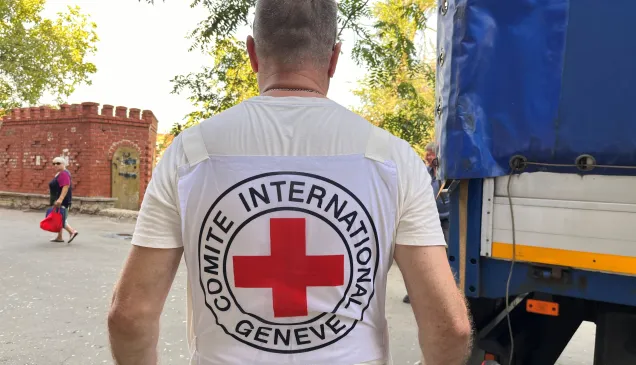Chair,
The International Committee of the Red Cross (ICRC) welcomes the continued interest of the United Nations General Assembly in the principle of universal jurisdiction and takes note of the Secretary-General's most recent report on this issue.
The principle of universal jurisdiction is one of the key tools for ensuring that serious violations of international humanitarian law (IHL) are deterred and – when they do occur – are investigated and, if appropriate, prosecuted.
High Contracting Parties to the 1949 Geneva Conventions are obligated to search for suspected perpetrators of certain IHL violations which are qualified as grave breaches, regardless of their nationality.
This obligation does not require any link to the investigating State. For example, there is no requirement that the alleged offense was committed in the territory of that State.
The Geneva Conventions also require High Contracting Parties to establish in their national legislation, at a minimum, the universal jurisdiction sufficient to prosecute or extradite the alleged offenders.
Additional Protocol I of 1977 to the Geneva Conventions extends this principle to grave breaches relating to the conduct of hostilities. It also qualifies all grave breaches as war crimes.
Other international instruments place a similar obligation on States Parties to vest some form of universal jurisdiction in their courts over serious violations of the rules contained in those instruments.
These include, for example, the 1954 Hague Convention for the Protection of Cultural Property in the Event of Armed Conflict and its Second Protocol (1999), the 1984 Convention against Torture and Other Cruel, Inhuman or Degrading Treatment or Punishment and the 2006 International Convention for the Protection of All Persons from Enforced Disappearance.
In addition, State practice and opinio juris have crystallized into a rule of customary international law whereby States have the right to extend universal jurisdiction to other serious violations of IHL.
These include, in particular, serious violations of Article 3 common to the four Geneva Conventions of 1949 and of Additional Protocol II of 1977, as well as those listed in Article 8 of the 1998 Rome Statute of the International Criminal Court.
Chair,
States have a responsibility to investigate war crimes over which they have jurisdiction and, if appropriate, prosecute the suspects.
In addition to jurisdiction over crimes committed on a state’s own territory or by its own nationals, the exercise of universal jurisdiction over war crimes, no matter the perpetrator or location, can serve as an effective mechanism to ensure accountability and limit impunity.
A growing number of States are using universal jurisdiction to effectively address prevailing impunity gaps and move towards accountability for serious violations of IHL perpetrated beyond their borders, in past or ongoing armed conflicts.
These efforts also send an important message to victims and survivors that accountability is not just an aspirational goal, but a tangible commitment made by the international community.
The ICRC takes note however of the fact that universal jurisdiction is not currently being applied evenly across all armed conflicts.
Consistency in the application of universal jurisdiction is an important part of enforcing IHL, and States exercising universal jurisdiction should pursue accountability universally, impartially and without bias.
Chair,
The ICRC will continue to support States both in their efforts to strengthen their national criminal legislation and to establish universal jurisdiction over serious violations of IHL.
The ICRC continues to develop specialized tools to assist States to understand and implement their obligations under IHL. These tools take the form of databases, reports and technical documents – all of which are made available to States and to the general public.
The ICRC has also advised States during the drafting of the Ljubljana-Hague Convention on Cooperation in the Investigation and Prosecution of the Crime of Genocide, Crimes against Humanity, War crimes and Other International Crimes, which reaffirms once again that States have an obligation to enact universal jurisdiction.
The ICRC recognizes that States may attach conditions to the application of universal jurisdiction to grave breaches or other serious violations of IHL, but those conditions must be intended to increase the effectiveness and predictability of universal jurisdiction and not to unnecessarily restrict the prospects for international justice.
Any conditions must not be used by States to bring political considerations into play, or as a way of evading their duties to search for and either prosecute or extradite an alleged offender.
The ICRC reiterates its readiness to continue engaging with and supporting States' efforts to ensure greater respect for IHL, in the area of universal jurisdiction and all other areas.
Thank you Chair.




